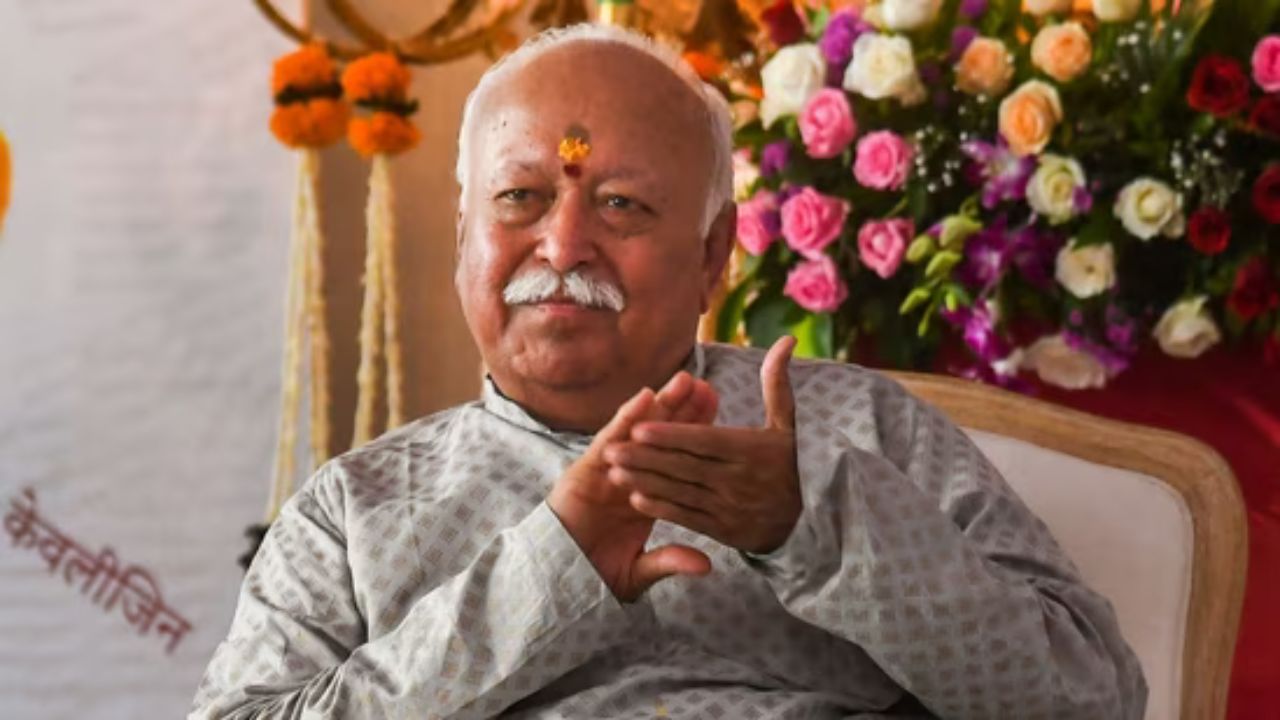 English
English

RSS chief Mohan Bhagwat addresses questions on why the organisation is not formally registered and how it received tax exemption, citing historical bans and recognition by government, while explaining the Sangh’s mission to organise Hindu society.

Mohan Bhagwat said RSS has been banned 3 times in the past.
Bengaluru: Rashtriya Swayamsewak Sangh chief Mohan Bhagwat recently addressed questions regarding the legal status and tax exemption of the organisation. Speaking at an event in Bengaluru, Karnataka, he highlighted that formal registration is not mandatory for all entities, citing that even Hindu dharma itself is not registered.
Bhagwat explained that RSS, founded in 1925, was not registered under the British government, and following Independence, the Indian government did not make registration compulsory. “Many things are not registered. Even Hindu dharma is not registered,” he stated while responding to public queries.
Bhagwat argued that RSS’s recognition by the government stems in part from the three times it was banned. “If we were not there, whom did they ban?” he remarked, emphasizing that the bans over the years underline the organisation’s long-standing presence and importance. He added that these challenges, including opposition, criticism, and even attacks on Swayamsevaks, have not deterred members from dedicating themselves to the organisation.
He clarified that RSS is not a political or reactionary body but aims to organise society. “It is an organisation of the society, not in the society. \ow we have a strong presence in the country, but we are not satisfied, because the whole society has to be organised,” Bhagwat said.
Karnataka Govt faces another setback as court dismisses petition on RSS ban stay
On the matter of taxes, Bhagwat noted that the income tax department and courts have recognised RSS as a body of individuals, which exempts it from paying tax. This legal status has helped the organisation continue its work without financial constraints, according to Bhagwat.
He also highlighted the Sangh’s mission to organise Hindu society. “We want to organise the Hindu society, the whole of the Hindu society — all 142 crore people with so many religious denominations. And some of them came from outside during the course of history,” he said. The RSS has also initiated dialogue with those who do not identify as Hindus to promote unity and understanding.
Addressing the objectives of the organisation, Bhagwat emphasised that RSS does not seek power or prominence. “It doesn’t want power. It doesn’t want prominence in society. It just wants to serve, organise the society for the glory of Bharat Mata,” he said. He further reiterated that Sanatan Dharma is the foundation of a Hindu nation and its progress aligns with the development of India.
The RSS chief stressed that the organisation is committed to the holistic development of individuals to strengthen society. Despite facing bans and criticism in the past, Bhagwat affirmed that Swayamsevaks remain dedicated to the Sangh’s mission without expecting personal gain.